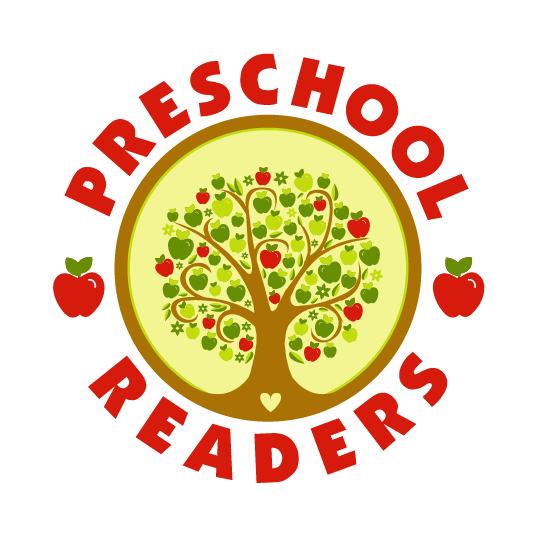Expert Interview
At Preschool Readers, we understand that various factors affect a child’s learning process. To remain up-to-date and informed on best practices, we have an Expert Interview series. In this series, we interview experts who provide tips, tricks, and suggestions for parents of preschoolers. We hope you enjoy our interview with Jennifer Kraeuter, Occupational Therapist and Owner/Executive Director of Occupational Therapy Associates Princeton (OTAP).

Name & Job Title: Jennifer Kraeuter, Occupational Therapist and Owner/Executive Director of Occupational Therapy Associates Princeton (OTAP)
Business Name: Occupational Therapy Associates of Princeton
What Services Do You Provide and Whom Do You Serve: We are a private pediatric occupational therapy practice serving children and their families from birth to 18. OTAP focuses on treating the “whole child” using a multi-sensory developmental approach. We work with children of all ages with any developmental challenges from coordination disorders to problems with self-regulation, sensory processing, social skills and difficulties at school. At OTAP each child learns the fundamentals necessary to create a foundation for learning so that they can build on their strengths and experience success. We believe that parents and caregivers are an integral part of the therapy process. OTAP provides on-site training following all treatment sessions to ensure growth continues in the home. We also work closely with school staff to increase carryover in the educational environment.
What Is Occupational Therapy: The goal of pediatric occupational therapy is to help children develop the skills and abilities needed to perform everyday activities, such as playing, self-care, schoolwork and socializing with others. Occupational therapists use a variety of therapeutic techniques, exercises, and activities to help children build strength, coordination, fine motor skills, sensory integration, and cognitive abilities. They also work with parents and caregivers to help them support their child’s progress and achieve their therapy goals.
By working with children and families to develop personalized treatment plans, pediatric occupational therapy can help improve children’s quality of life and promote their overall development and well-being.
What Are Some Signs Parents Can Look For To Determine If Their Preschooler Is In Need of Occupational Therapy: I tell parents to “go with their gut!” If they have a concern, no matter how big or small, reach out to a licensed Pediatric Occupational Therapist. When in doubt, have it checked out. Parents and Caregivers of preschoolers can be on the lookout for any of the following signs:
- does not enjoy jumping, swings or having their feet off the ground
- dislikes coloring, doing puzzles or cutting with scissors
- seems to have weak muscles
- avoids playground activities
- needs more practice than other children to learn new skills
- dislikes bathing, haircuts, nail trimming
- difficulty focusing their attention or over-focused and unable to shift their attention to the next task
- frequently says “I can’t do it” for day-to-day activities and self-care tasks
- breaks crayons, pencil points, toys easily
- easily tantrums and does not recover within a few minutes
- overly active, unable to slow down, moves quickly from one toy/activity to another
- avoids playground activities
- has difficulties socializing/playing with other children
- clumsy, falls frequently, seems to trip over their own feet
- delayed language development
- overreacts to touch, smell, taste, and sounds
What Are Some Everyday Activities Parents Can Do With Their Preschooler To Encourage Fine Motor Skills: There are many things parents and caregivers can do to help their preschooler develop fine motor skills:
- Have your children try getting dressed on their own. Give them a chance to work on buttons, zippers, snaps and Velcro.
- Encourage painting but not just with brushes. Use everyday household objects such as cotton balls, q-tips, pom-poms, forks and spoons, potato mashers and other safe kitchen tools. Put papers on an elevated surface such as an easel, or taped to the wall, a door or even the fence outside. Working on an inclined surface will strengthen not only those hands but also their arms and shoulders.
- Let them help with chores around the house. Allowing children the opportunity to work on watering the plants with a spray bottle, wiping the table, putting wet clothes into the dryer or even pushing the laundry basket down the hall are all wonderful ways to help your children strengthen their bodies.
- Create with Play-doh or clay. Dough play allows children the opportunity for open ended creation. Rolling, flattening, pinching, and pulling are all ways to strengthen those little fingers.
- Encourage play with household items! Most household tools can be turned into a toy that will promote fine motor skill development. Use tongs and tweezers to carry, sort or transfer objects. String cereal or pasta to make necklaces. Work on forming lines and shapes in a tray of sprinkles or salt. Wrap those puzzle pieces in foil and have them unwrap the pieces as part of a small obstacle course with various animal walks to support overall body strengthening.
- Encourage time with books. Read to your children and have them help you re-tell the story. Play I-spy and have them point out what they see in the picture. Look at books while laying on your stomach to support strengthening of the arms and shoulders.
What Books Do You Recommend For Parents: A favorite book of mine for parents is “The Out of Sync Child, Third Edition” by Carol Kranowitz. Other good books to help parents who may be struggling to understand and help their child are “The Emotions Book: Helping Children Find the Language to Master Their BIG Feelings” by Liz Fletcher and “The Color Monster” by Anna Llenas. All these books help parents understand how their child might be perceiving their world, and provide useful tools to help navigate growth and development together.
And Just For Fun… What Is One Word You Would Use To Describe Yourself As a Preschooler: Shy
How Can Parents Connect Or Work With You:
- Phone: 609-921-1555
- Email: admin@otap.net
- Website: www.otap.net
- Instagram: @otapkids
- Facebook: https://www.facebook.com/OTAP.NJ/


